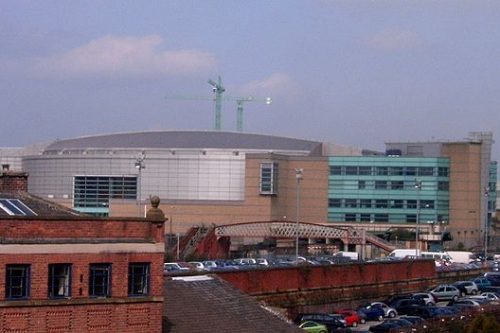Royal College launches diploma aimed at emergency services following Arena attack

A groundbreaking diploma aimed at the emergency services has been launched, in response to the Manchester Arena terrorist attack more than six year ago.
The Diploma in Major Incident Management (DipMIM) aims to revolutionise the training and preparedness of emergency care workers during major incidents.
Created by the Faculty of Prehospital Care (FPHC)and hosted by the Royal College of Surgeons of Edinburgh (RCSEd) this first-of-its-kind exam bridges a critical gap between basic incident management and Masters’ level expertise.
The concept for this vital diploma was inspired by many tragic events, both in the UK and internationally, with the ultimate catalyst being the Manchester Arena Inquiry, which uncovered the need for a qualification that could reflect the complexity of major incidents and the interagency working between police, fire, and ambulance services.
When the Arena was targeted in May, 2017, there was widespread disquiet at a perceived delay in emergency services reaching those affected by the horrific attack.
Earlier this year, Dr Pam Hardy, chair of the Faculty of Pre-hospital Care, was cited to provide a statement to the Inquiry about the role of the faculty and how they could help to address several of the monitored recommendations.
Coinciding with the progress of the diploma gaining momentum towards completion, Dr Hardy felt it was key to addressing the ‘care gap’ cited in the Inquiry, and the need for close collaboration between agencies and responders at the scene of any future incident.
Lending his support, Hon Sir John Saunders, chairman of the Manchester Arena Inquiry, said: “Many of the responders from the emergency services who bravely rushed to the scene of the Manchester Arena bomb did not know what they could do to best assist the victims.
“The evidence at the Inquiry showed how vital it is that the best possible treatment is available during the ‘care gap’, that is the time between when life-threatening injuries are suffered and the victims arrive at hospital for treatment, in order to save lives and reduce the long term effects on those who survive. This new diploma will help fill that gap.
“As chairman of the Inquiry, I am delighted that this is being set up. It will help meet one of my most important recommendations and assist in trying to ensure that the shortcomings in the emergency response at Manchester will not happen again.”
RCSEd and FPHC have a long history of delivering examinations in Immediate Medical Care, Retrieval & Transfer Medicine and Urgent Medical Care.
This new qualification addresses the organisational and regulatory framework of major incident management, placing emphasis on preparedness, coordination, and effective response. It is designed for professionals involved in planning and organising major incident responses across various fields, including emergency services and healthcare workers.
Prof Rowan Parks, President of the RCSEd, said the introduction of the diploma will be vital for those who stand at the frontline of emergency response, providing them with the knowledge and confidence to navigate the complexities of major incident management.
He said: “The Manchester attack left a devastating imprint on the lives of so many – families, survivors, first responders, and healthcare workers – but there is a real desire to emerge stronger from the tragedy.
“The Manchester Arena Inquiry highlighted an urgent need for enhanced training and certification to ensure response workers are as prepared as possible when facing these situations and we hope this diploma will go some way towards minimising the impact of any future major incidents.”








